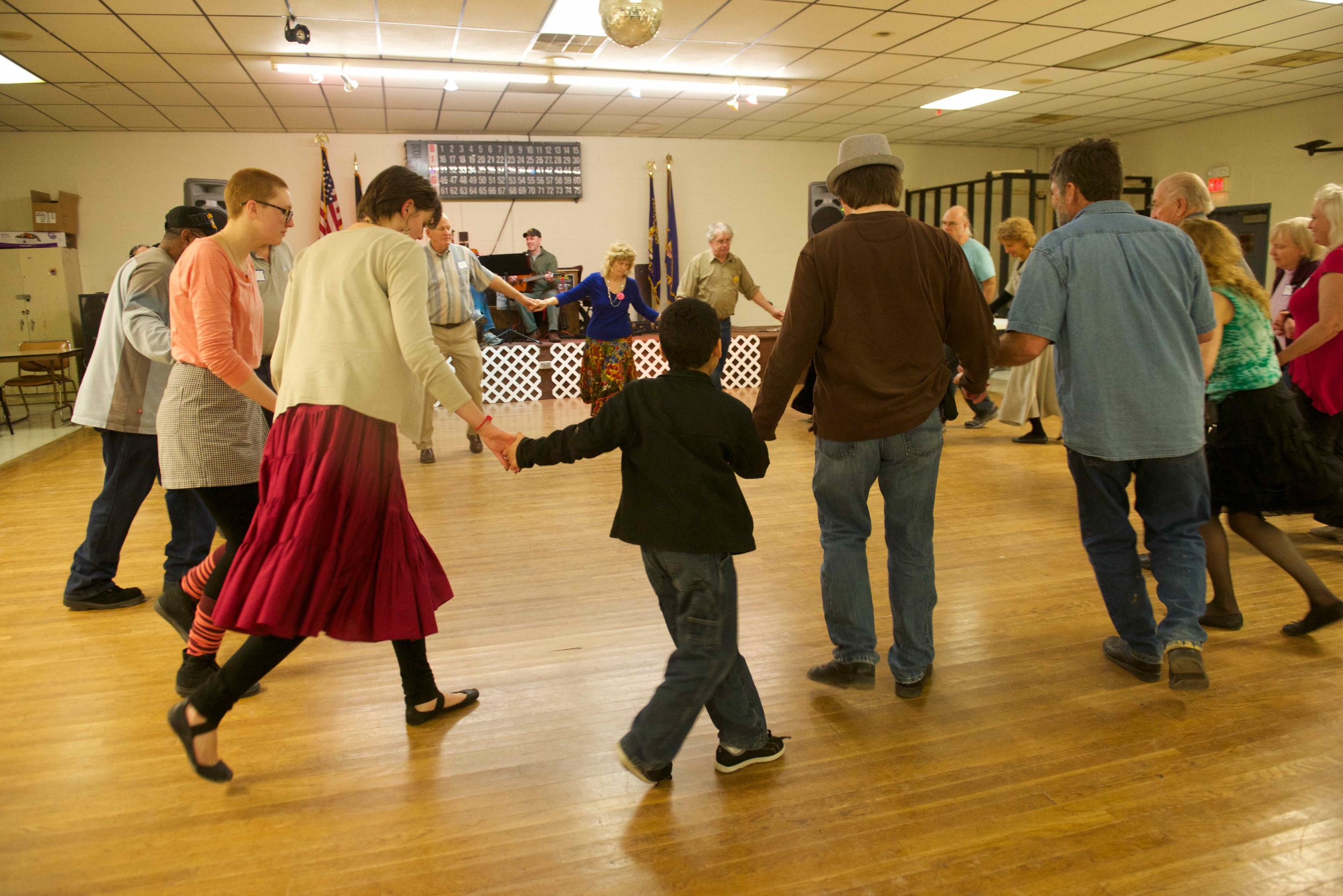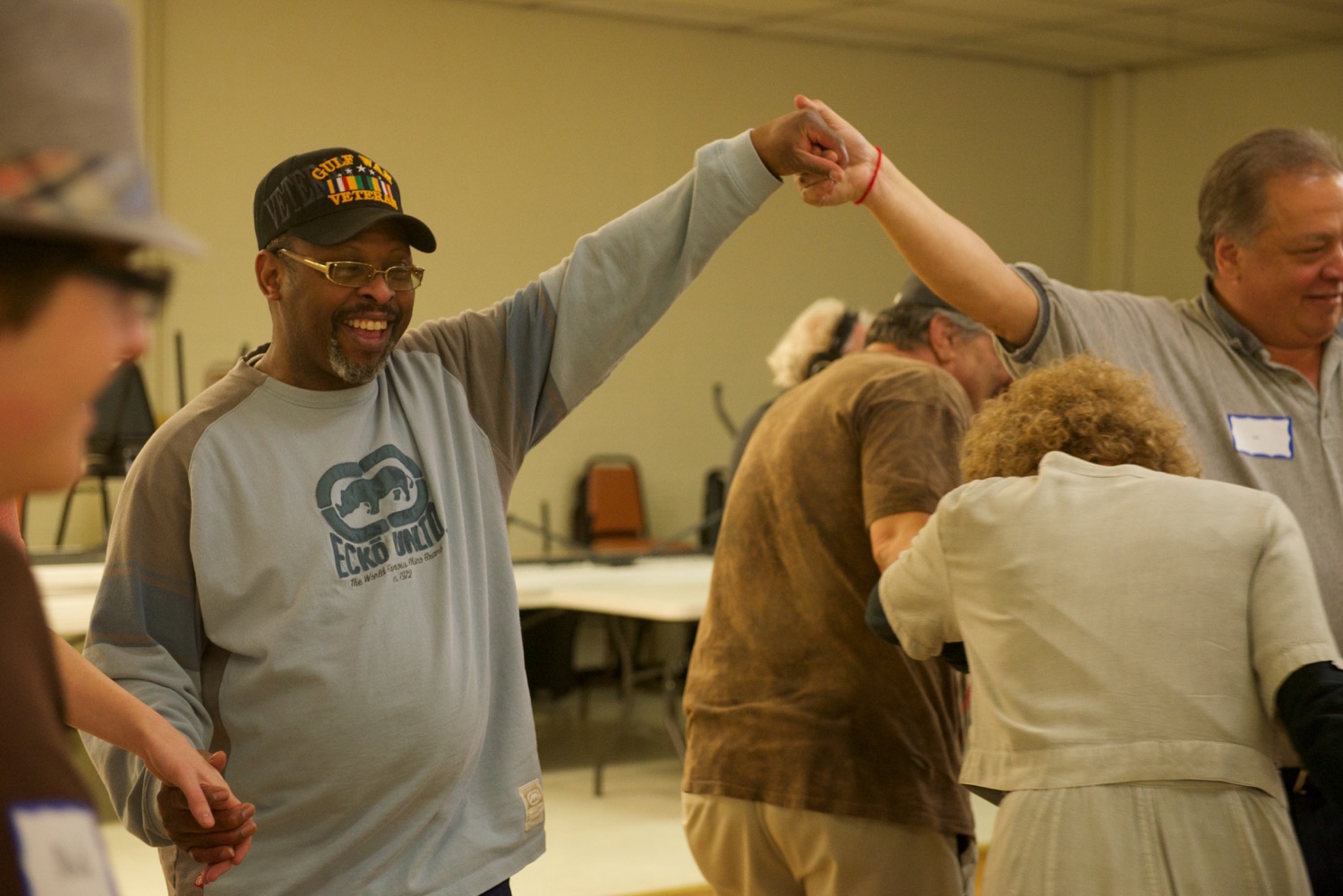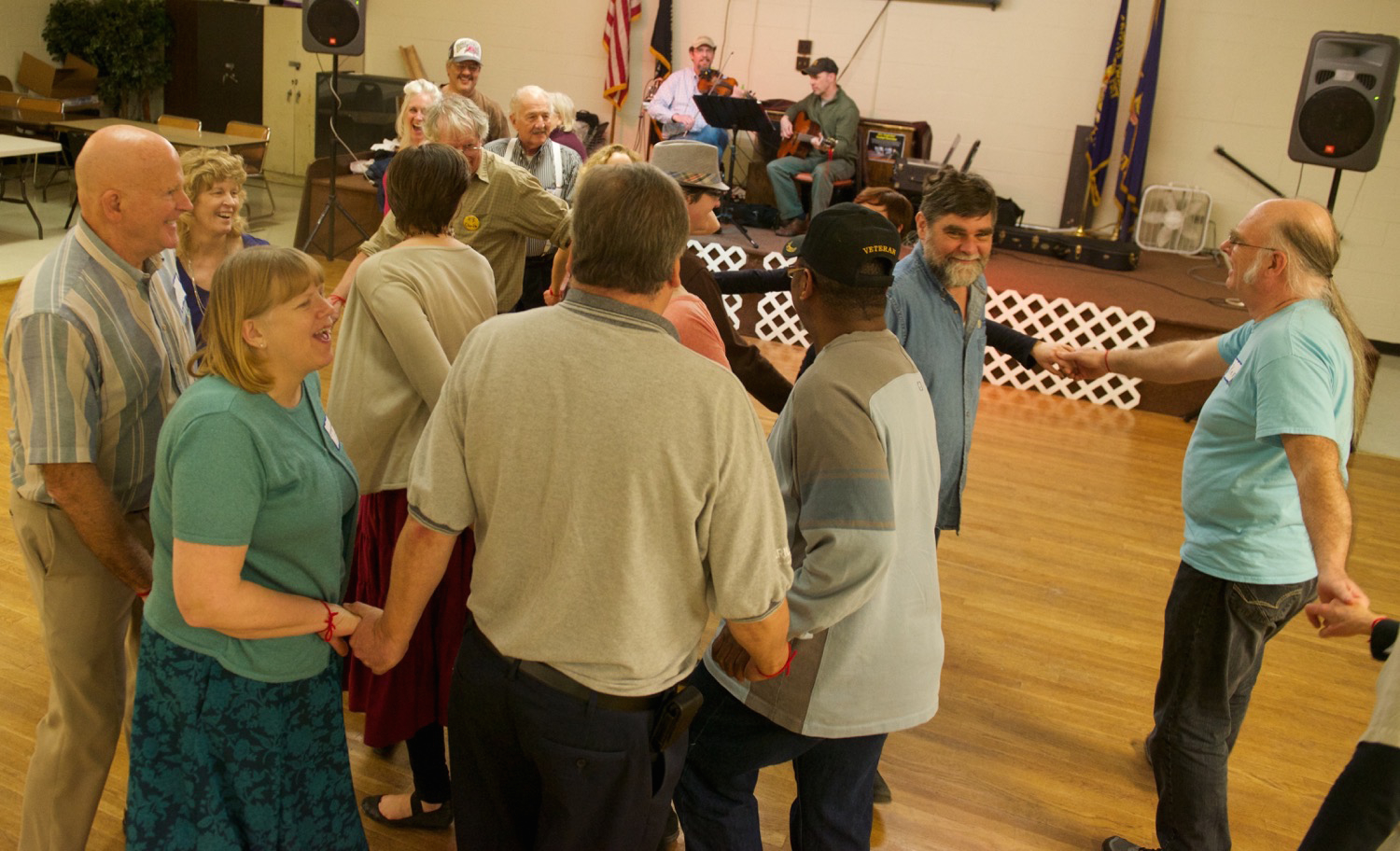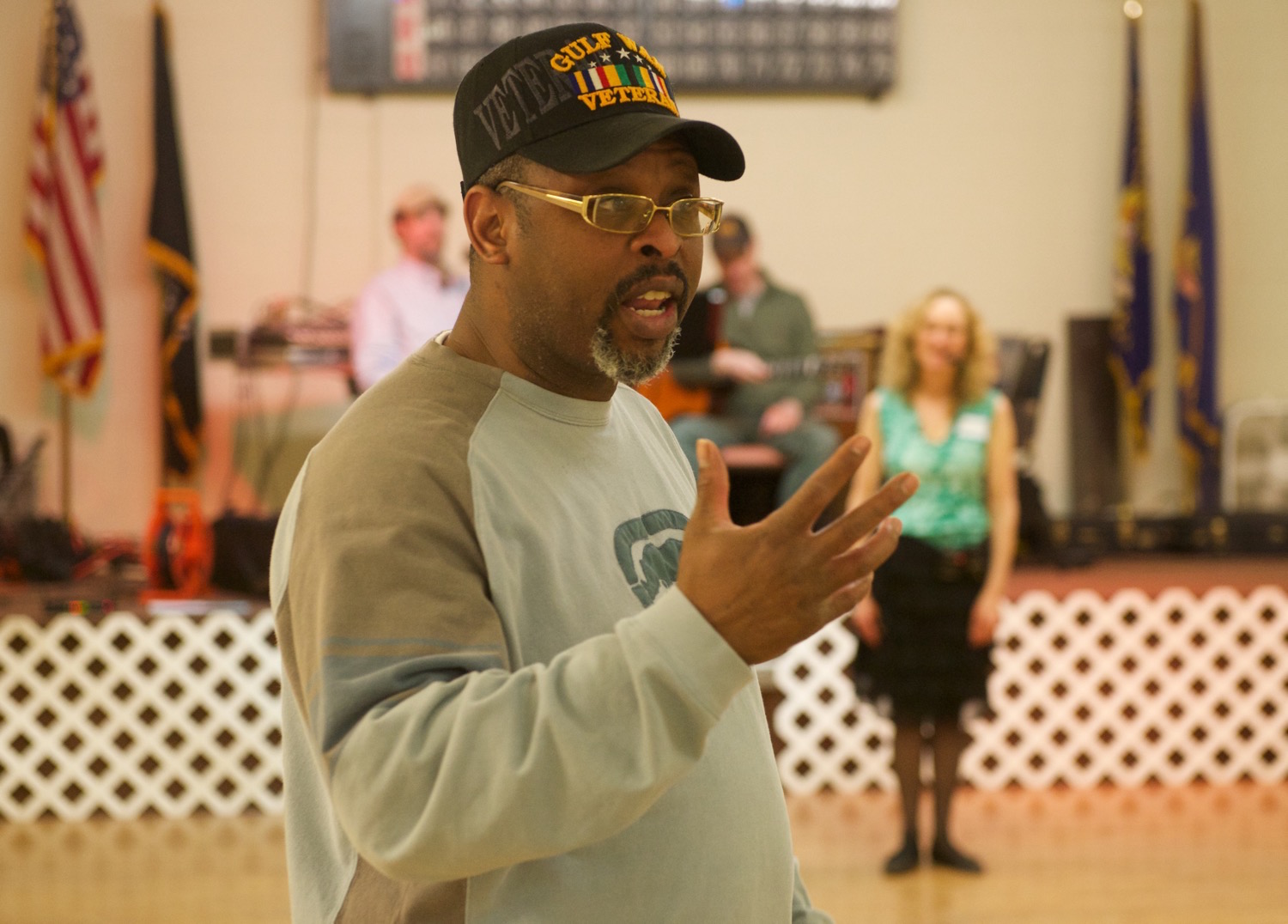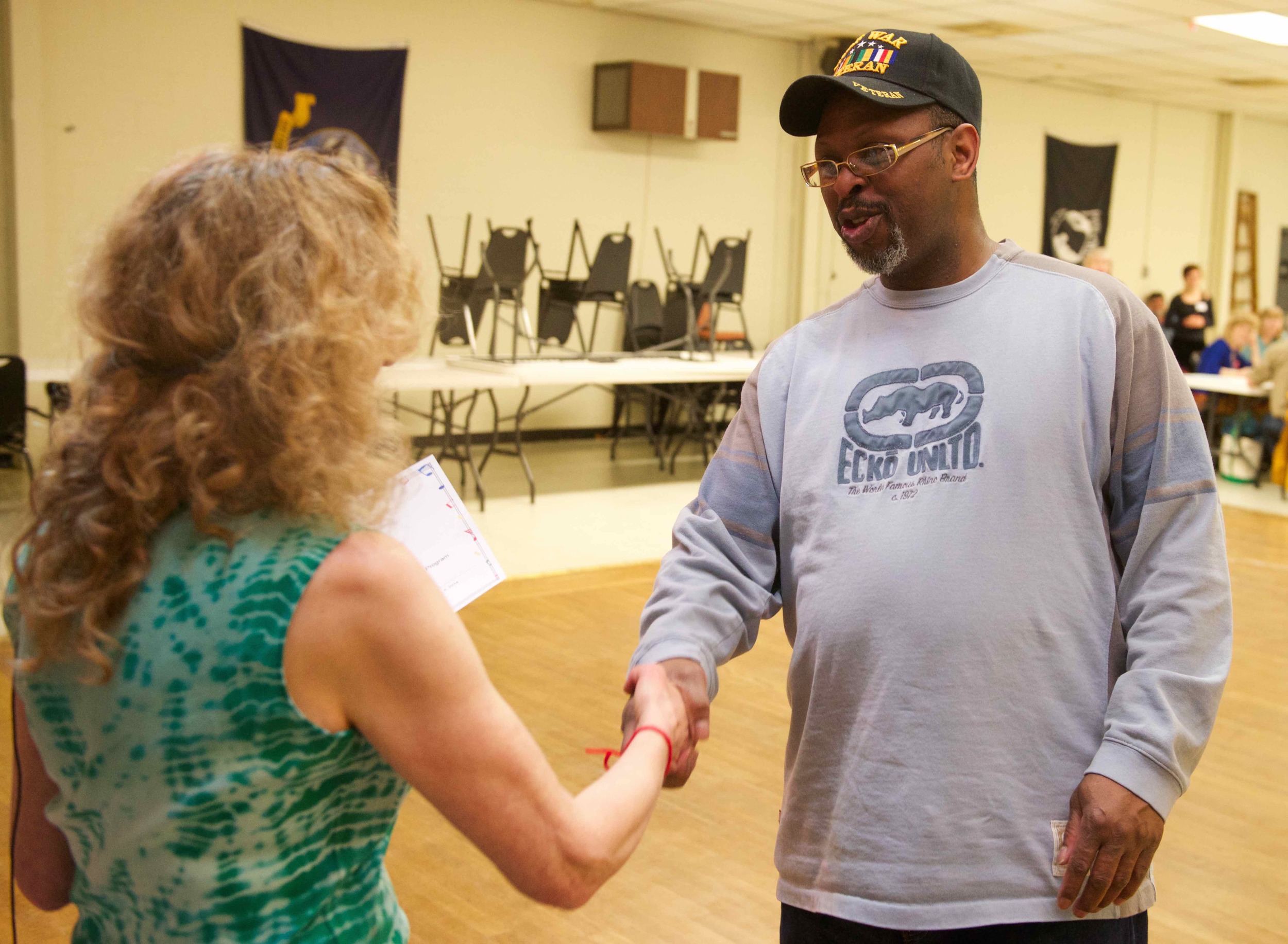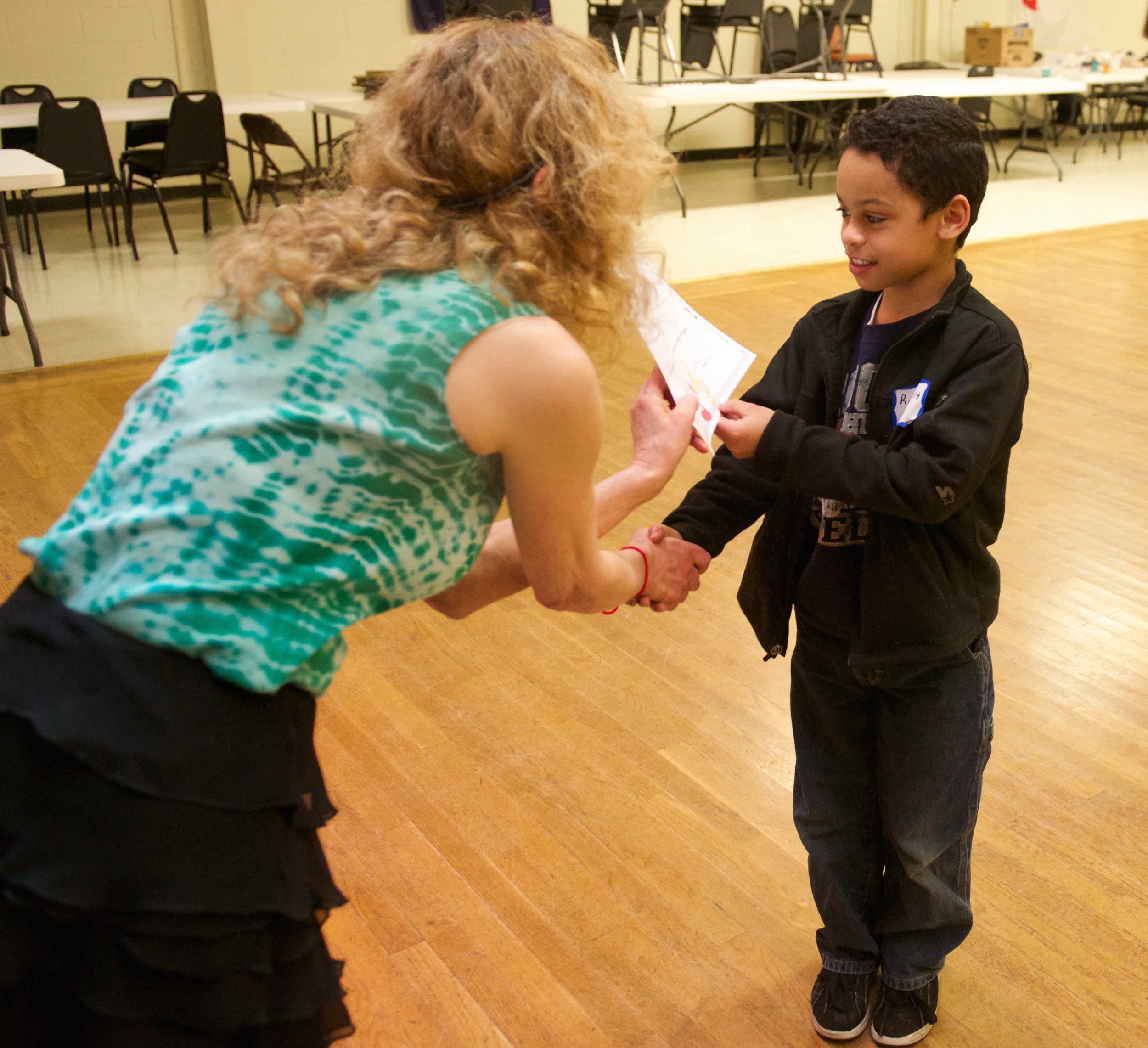
ROOSEVELT’S STORY
“Even if I came in a wheelchair – the atmosphere, the compassion of the people, the dancing itself would be beneficial. I would be a part of it. Even if they had to push me in a wheelchair, I would want to be there. This is needed.”
Anyone who danced in our Louisville series will remember Roosevelt’s infectious smile and unbridled enthusiasm. You know how some people come alive when they find something they truly love, like it’s the best thing that ever happened to them? Well that was Roosevelt, galloping down the center of the hall with his partner, taking hands in a circle, and beaming at everyone he met.
According to his wife Jennell, Roosevelt had struggled to enjoy himself since leaving the military over ten years ago. But dancing in a community with others changed all that. “It’s like he’s part of something now,” she said. “He belongs. I haven’t seen him smile this much in probably a few years.”
Like other veterans who participated in Dancing Well, Roosevelt reported a host of benefits – from decreased anxiety and better physical health to improved mood, memory, and outlook on the future. He even reported feeling less pain from his war injuries.
Through Dancing Well, Roosevelt found a way to relieve stress and cope with the daily challenges of PTSD. “There are times when days are rough,” he said, “but this dance really helps out.”
Today, Roosevelt faces a whole new set of challenges. After suffering a terrifying health setback that paralyzed the right side of his body, he’s gone from walking six miles a day to struggling to make it to the end of his own driveway.
His doctors initially thought he’d had a stroke, but now they’ve tied his symptoms to PTSD. After six years in the reserves and nine years of active duty in the Army, it’s no small thing for Roosevelt to say that this is the worst thing he’s experienced in his life.
Even recovering from this incredible trauma, Roosevelt is still thinking about dancing. “Even if they had to push me in a wheelchair," he says, "I would want to be there.”
“They tell me I can regain use of everything, but if I get in high-stress situations, this can be triggered again and happen again. I need to do things that are relaxing. The dancing at Dancing Well relieves a lot of stress.”
“When I first went, I didn’t know a soul,” he says, “but soon I laughed and talked with everybody. It’s not just for old or for young, it’s for everybody. My son, who never wanted to dance before, he danced and we had a marvelous time.”
On his own evaluation form, Roosevelt’s eight-year-old son simply wrote, “I wish we could do this every day.” Our goal is to provide the opportunity to dance to veterans like Roosevelt and their families – if not every day, then on a very regular basis.


